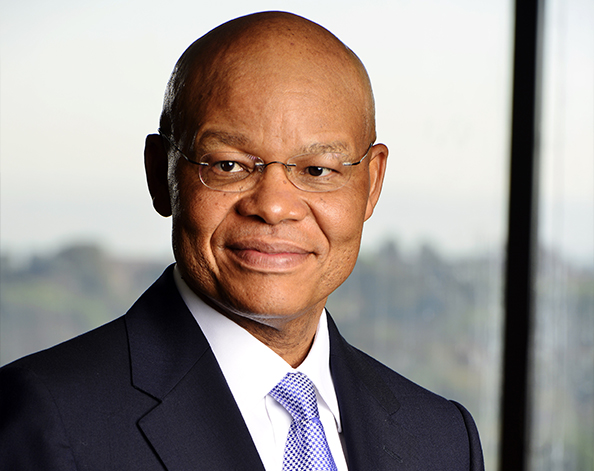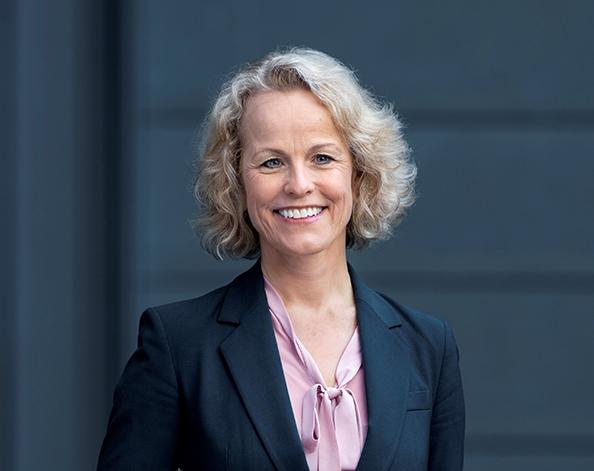Receive Focus insights straight to your inbox
Covid crisis threatens sustainable development
Covid-19 has exposed the consequences of deep systemic inequality and in some cases has exacerbated it. The case for investing in sustainable development, which encompasses ending poverty, protecting the planet and ensuring all people enjoy peace and prosperity, has never been more convincing.
According to the OECD’s latest Global Outlook on Financing for Sustainable Development, developing countries are now facing an annual shortfall of $3.7 trillion to achieve the SDGs.
The report says that just 20% of financial assets are held in developing countries, where more than 80% of people on the planet live. Reallocating just 1.1% of the total assets held by banks, institutional investors or asset managers would be sufficient to fill the gap in SDG financing.
So what's needed to incentivise sustainable investment in a pandemic ravaged world?
Speaking at a recent Business for Peace Foundation virtual event, two corporate leaders from opposite ends of the globe, Fani Titi, Investec's CEO and Carine Smith Ihenacho, Norges Bank Investment Management’s Chief Governance and Compliance Officer, shared their insights on what’s needed to scale and accelerate sustainable finance.
Good corporate governance is crucial
Titi and Ihenacho both highlight the importance of the “G” in ESG when evaluating where to invest. “When people talk about sustainable finance, their focus is often on green investments, but we should remember that corporate governance is at the core of sustainable investments,” says Ihenacho.
She adds: “It is the company board and the management that is accountable for a company's social and environmental outcomes. They should understand the environmental and social consequences of company operations, including considering the interest of relevant stakeholders.”
Titi explains Investec position: “Founded 40 years ago, Investec has always understood that our purpose has to be beyond tomorrow's profits. We have to think long-term and we have to be a partner to the societies in which we live. That's why our motto is, 'we live in society and not off it'."
“So, we have fully endorsed the journey towards the 2030 Agenda and have come to believe that it cannot be business as usual, that our commitments have to be deeper, and our commitments have to be executed at a pace that is better than before. As an example, with the advent of Covid, we spent 2.6% of our operating profit on our social investment activities.”

It takes a level of courage from the board to say we are managing for the long term. We believe that mindset will give us better results measured on a number of metrics like profit and impact.
Bringing reticent clients to the green side
Not every business is convinced that sustainable investing is an opportunity. So how do you deal with clients that don’t adhere to your stated policies and principles? And beyond adherence, how does a corporate convince a client of the opportunities inherent in the long game and the green transition?
Titi says the reaction from clients to sustainability has been mixed. “From a client perspective, the journey is quite a difficult one, because the transition has to happen, I think faster than most clients are prepared for. And it is our role as a bank, and as a wealth manager to explain to our clients the importance of sustainability, and what our minimum expectations are.”
“Sometimes the solution to non-sustainable practices requires a rather onerous, long-term approach. Companies shouldn’t exit whole operations to wash themselves of so-called ‘dirty investments.'. The impact of those operations will be felt for decades to come. Divesting doesn’t absolve a company, in my view, from its responsibilities.”
Improving corporate sustainability disclosure
Ihenacho explains that corporate sustainability reporting is at the heart of sustainable reporting. She says disclosure has progressed significantly, but regulators can still improve transparency by consolidating sustainability reporting frameworks and mandating a minimum level of disclosure.

We’re talking about efficient and productive allocation of capital and that can only happen with relevant, timely and accurate information from companies.
Last year, in an effort to standardise and simplify what’s needed from companies to be considered for investment, Norges Bank Investment Management published a guide detailing their three minimum requirements.
“First, we want to understand that our company's exposed to a specific sustainability risk. And secondly, we want to know how this risk is managed and that includes the company's governance of this issue.
"And lastly, we need relevant, comparable and reliable performance indicators and this can for instance, be greenhouse gas emissions, or it can be total water withdrawal and consumption, and here the companies should really use recognised calculation methodologies.”
Adopting a universal “sustainability language” and measurement
According to Titi: “There has to be a common taxonomy and definition of what we're trying to achieve, and that understanding must go beyond borders. Internationally, you can point to the Global Reporting Initiative (GRI), or the Carbon Disclosure Project (CDP).
"As these common standards proliferate around what data is required, and what it means, I think you will see the world converge towards a common standard. The progress we’ve seen in South Africa and the UK where we operate, makes me excited."
Ihenacho shares Titi’s optimism when it comes to the convergence of reporting standards. “We encourage the companies we invest in to report according to Sustainability Accounting Standards Board (SABS) and GRI. But the endgame should be one standard to replace many of the existing ones and provide one global solution."
"We should have the same standard for sustainability as we have for financial figures."
Multilateral, collaborative effort needed
“The task of development is so huge that it cannot be left only to governments, nor can it be left only to civil society who will agitate for change. Business is an essential partner on that path towards development,” says Titi.
Titi’s personal success and development are inextricably linked to the economic development of his home country, South Africa. “I lived in a shack with 12 of my siblings, my father had nothing, my mother couldn't read or write and yet over a 40-year period, here I am. And if you look at South Africa as a whole, you will see that there has been a level of significant development but we need more capital and investment into the country."
Amina Mohammed, the UN Deputy Secretary-General and Chair of the UN’s Sustainable Development Group, explains that new business models must be forged that work for people and planet. She says business has a crucial role to play in bringing forward more and better jobs, and investment at the global level.
“Many capital reserves are now seeking investable portfolios, increasingly with a sustainability dimension. Those funds need to be directed towards achieving the SDGs and the Paris Agreement."
"Companies and countries that can best embrace sustainability and incorporate the values of the 2030 Agenda will find themselves with a competitive advantage,” says Mohammed.
Watch video
Mohammed was the keynote speaker at the Business for Peace’s 2021 “Spotlight Series” discussion entitled, “Scaling Sustainable Finance and Economic Growth". She was joined by Investec CEO, Fani Titi and Norges Bank Investment Management Chief Governance and Compliance Officer, Carine Smith Ihenacho.
Watch the discussion
It all boils down to risk vs reward
In conclusion, Titi and Ihenacho agreed that quantifying risk and collaboration were the most essential factors to scale and accelerate sustainable finance.
"Understanding the risks of lack of sustainable development and quantifying those risks is crucial. As an investor or an insurance company, if you understand that over time, you're going to have stranded assets, that begins to inform your decision of how you need to work on changing where you're investing your money."
"We need a multilateral effort, a common understanding that we either prosper together as a world or we prosper at different speeds with the risk of instability."
Ihenacho echoes this assessment: "We are about to run out of time. I think understanding risk because, for many investors, it's about risk and reward. I'd agree with Fani - risk and working together are the two most important factors."




